Bijun Tang
MATAI: A Generalist Machine Learning Framework for Property Prediction and Inverse Design of Advanced Alloys
Nov 13, 2025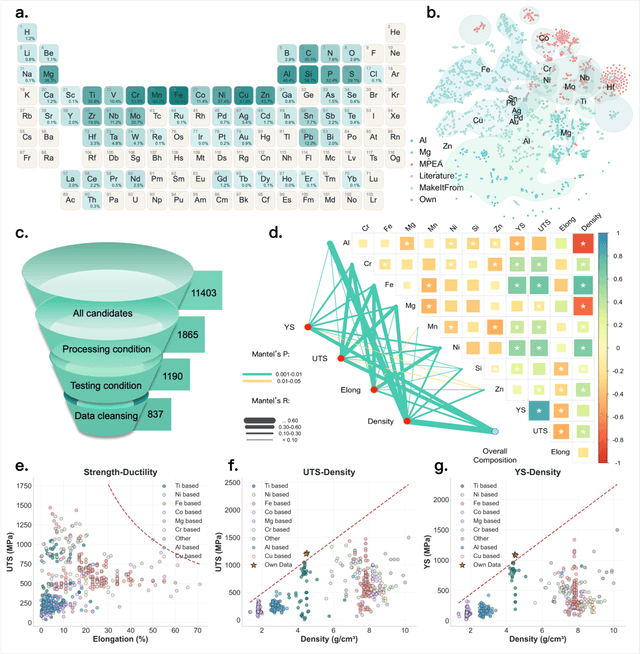
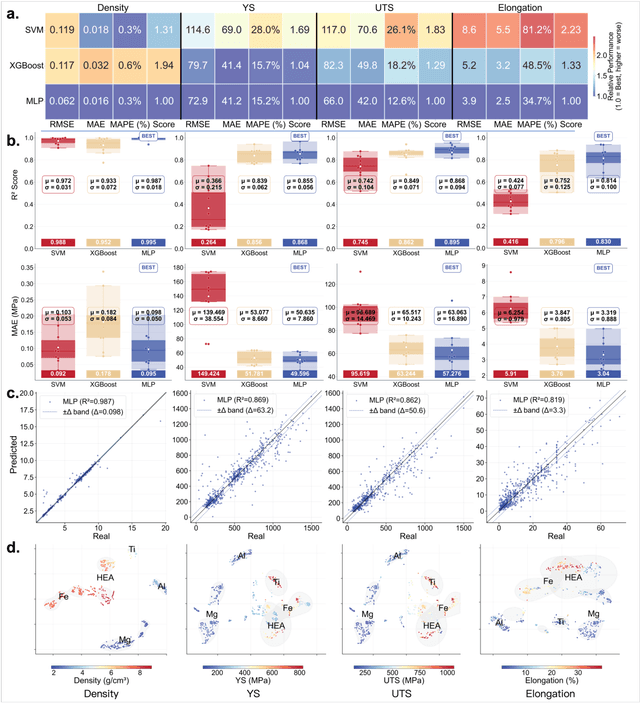
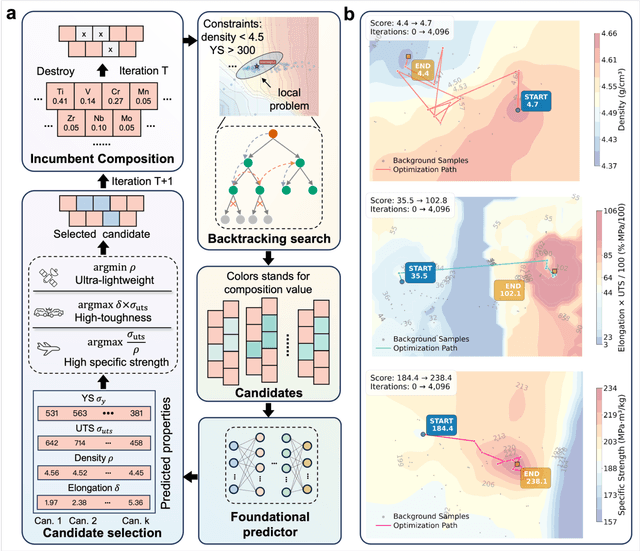
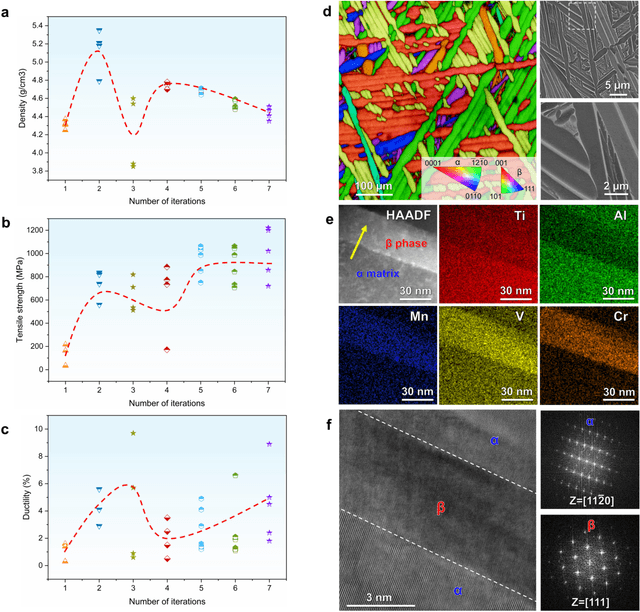
Abstract:The discovery of advanced metallic alloys is hindered by vast composition spaces, competing property objectives, and real-world constraints on manufacturability. Here we introduce MATAI, a generalist machine learning framework for property prediction and inverse design of as-cast alloys. MATAI integrates a curated alloy database, deep neural network-based property predictors, a constraint-aware optimization engine, and an iterative AI-experiment feedback loop. The framework estimates key mechanical propertie, sincluding density, yield strength, ultimate tensile strength, and elongation, directly from composition, using multi-task learning and physics-informed inductive biases. Alloy design is framed as a constrained optimization problem and solved using a bi-level approach that combines local search with symbolic constraint programming. We demonstrate MATAI's capabilities on the Ti-based alloy system, a canonical class of lightweight structural materials, where it rapidly identifies candidates that simultaneously achieve lower density (<4.45 g/cm3), higher strength (>1000 MPa) and appreciable ductility (>5%) through only seven iterations. Experimental validation confirms that MATAI-designed alloys outperform commercial references such as TC4, highlighting the framework's potential to accelerate the discovery of lightweight, high-performance materials under real-world design constraints.
Machine learning driven synthesis of few-layered WTe2
Oct 10, 2019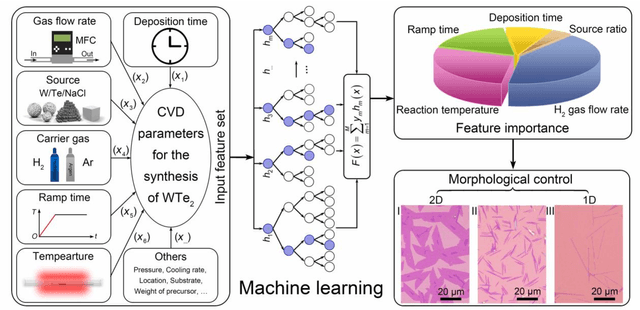
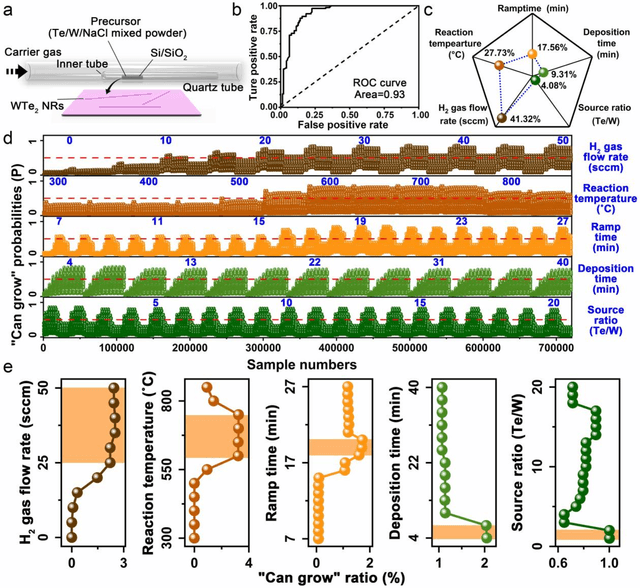
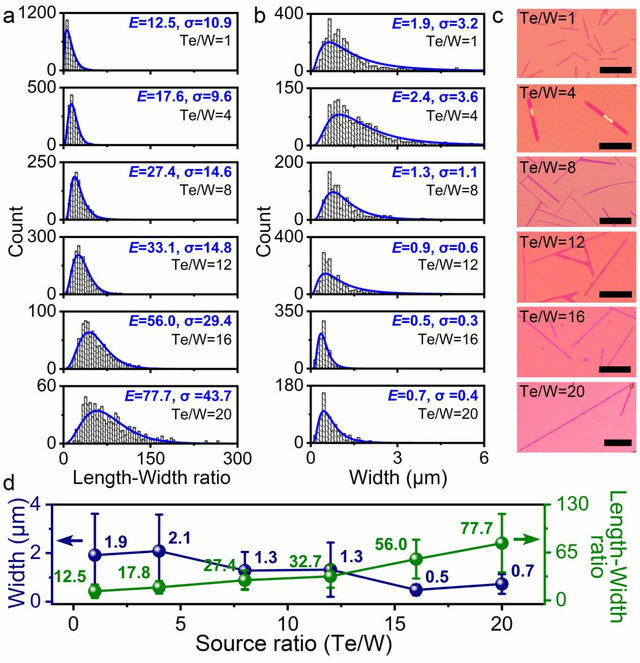
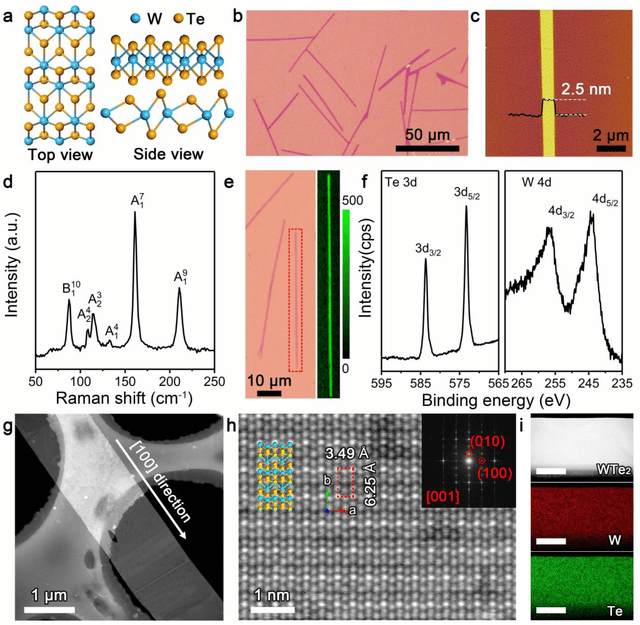
Abstract:Reducing the lateral scale of two-dimensional (2D) materials to one-dimensional (1D) has attracted substantial research interest not only to achieve competitive electronic device applications but also for the exploration of fundamental physical properties. Controllable synthesis of high-quality 1D nanoribbons (NRs) is thus highly desirable and essential for the further study. Traditional exploration of the optimal synthesis conditions of novel materials is based on the trial-and-error approach, which is time consuming, costly and laborious. Recently, machine learning (ML) has demonstrated promising capability in guiding material synthesis through effectively learning from the past data and then making recommendations. Here, we report the implementation of supervised ML for the chemical vapor deposition (CVD) synthesis of high-quality 1D few-layered WTe2 nanoribbons (NRs). The synthesis parameters of the WTe2 NRs are optimized by the trained ML model. On top of that, the growth mechanism of as-synthesized 1T' few-layered WTe2 NRs is further proposed, which may inspire the growth strategies for other 1D nanostructures. Our findings suggest that ML is a powerful and efficient approach to aid the synthesis of 1D nanostructures, opening up new opportunities for intelligent material development.
Machine learning-guided synthesis of advanced inorganic materials
May 10, 2019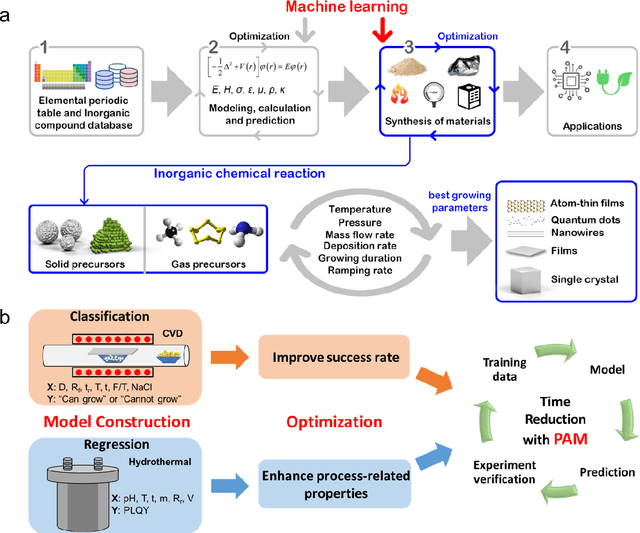
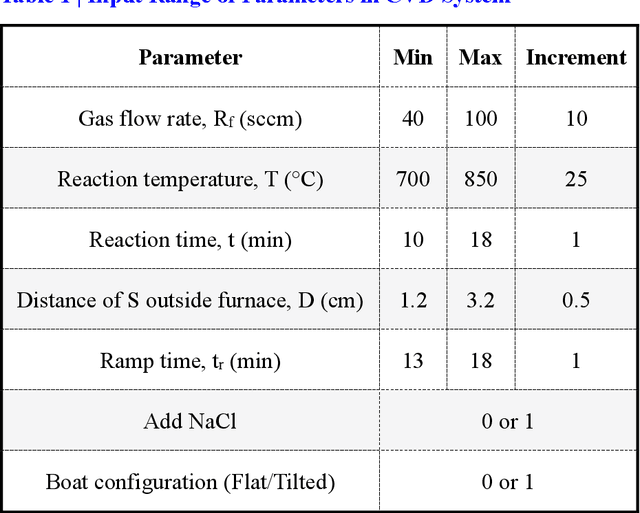

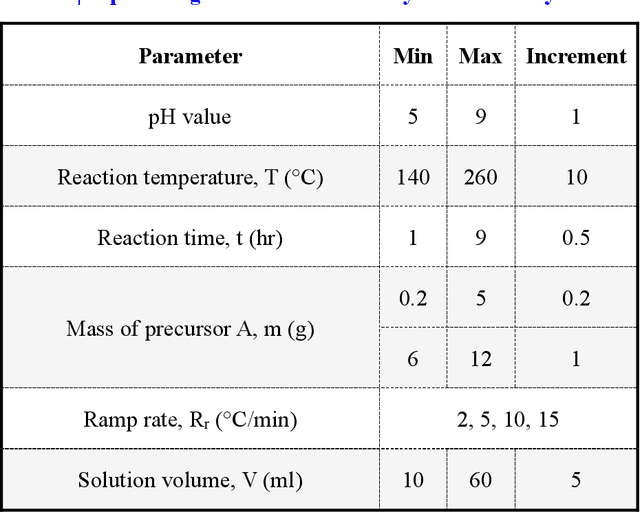
Abstract:Synthesis of advanced inorganic materials with minimum number of trials is of paramount importance towards the acceleration of inorganic materials development. The enormous complexity involved in existing multi-variable synthesis methods leads to high uncertainty, numerous trials and exorbitant cost. Recently, machine learning (ML) has demonstrated tremendous potential for material research. Here, we report the application of ML to optimize and accelerate material synthesis process in two representative multi-variable systems. A classification ML model on chemical vapor deposition-grown MoS2 is established, capable of optimizing the synthesis conditions to achieve higher success rate. While a regression model is constructed on the hydrothermal-synthesized carbon quantum dots, to enhance the process-related properties such as the photoluminescence quantum yield. Progressive adaptive model is further developed, aiming to involve ML at the beginning stage of new material synthesis. Optimization of the experimental outcome with minimized number of trials can be achieved with the effective feedback loops. This work serves as proof of concept revealing the feasibility and remarkable capability of ML to facilitate the synthesis of inorganic materials, and opens up a new window for accelerating material development.
 Add to Chrome
Add to Chrome Add to Firefox
Add to Firefox Add to Edge
Add to Edge